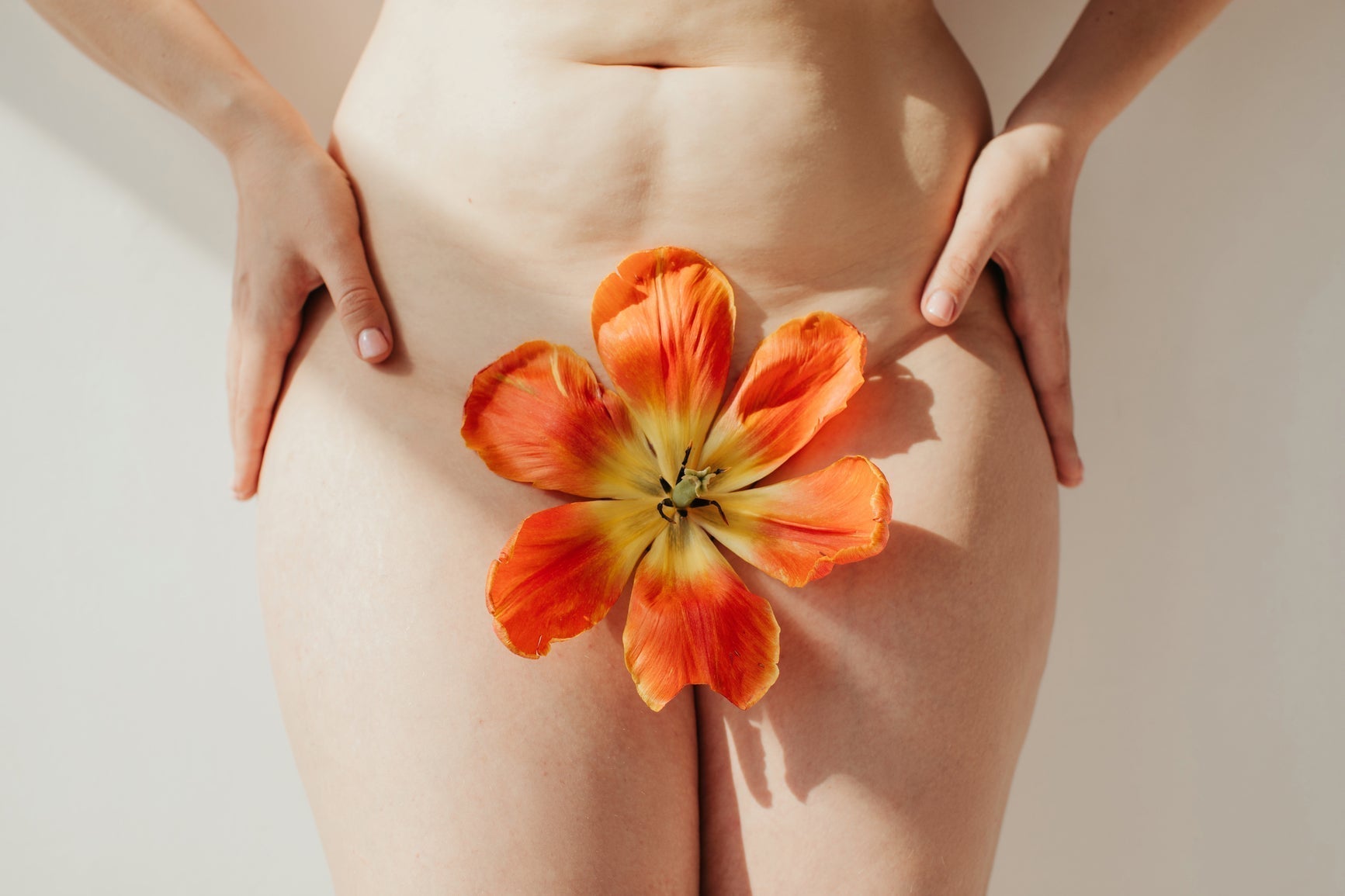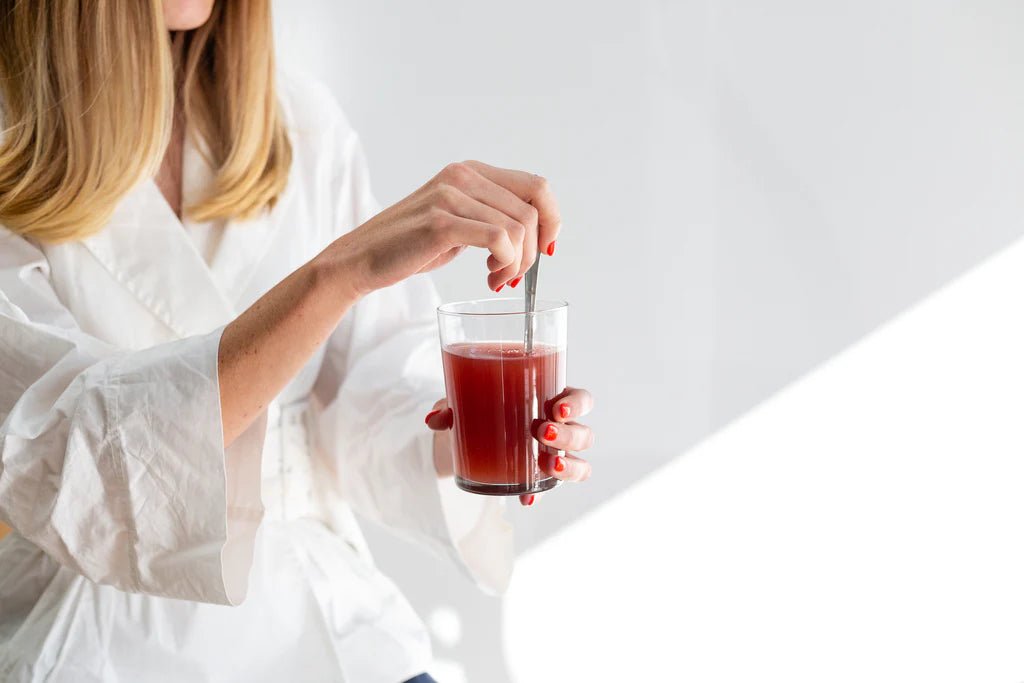
Hormones & Skin Health: how imbalanced hormones can affect your skin and what to do about it
By Ema Taylor
The endocrine system consists of glands that produce and secrete hormones. Hormones function as the body’s chemical messengers, relaying vital information to cells and tissues and are responsible for growth and development, metabolism, sexual function, reproduction and a balanced mood.
While period pain, breast tenderness and mood changes are the more obvious symptoms of a hormonal imbalance, there are also external symptoms such as skin complaints that may signify your hormones aren't entirely happy.
Fortunately, there are a number of ways to naturally balance hormones and improve your skin; the trick is figuring out which hormones are in need of a little TLC. Let’s take a look at the main offenders.
PCOS
One of the most common female conditions resulting from imbalanced hormones is polycystic ovarian syndrome (PCOS). A woman with PCOS may experience irregular menstrual cycles, acne, oily skin, unusual hair growth on the face, neck, chest or bottom, thinning hair on her head and weight changes. 1
The main hormonal imbalances associated with PCOS are insulin resistance and raised androgens, which are known as ‘male sex hormones’, however females also produce these.
Insulin is a hormone made by the pancreas that allows your body to use glucose (sugar) from carbohydrates in the food that you eat for energy or to store glucose for future energy use. You can think of insulin like a key that unlocks the door on your muscle, fat and liver cells to allow glucose to enter and be utilised for energy. Insulin helps keep your blood sugar level from getting too high (hyperglycemia) or too low (hypoglycemia) and in a healthy individual, insulin's job is a tightly regulated process. 2
The trouble begins when the cell doors begin to not respond to the key (insulin), which is trying to unlock them to allow glucose to enter and be utilised for energy, this is known as insulin resistance. The body knows there is too much glucose in the blood so it creates even more insulin to help transport the glucose into the cells – but the cells don’t respond to insulin leading to a build up of insulin in the body. Excess levels of insulin increase testosterone production in the ovaries, which impairs ovulation, causes irregular periods, leads to fatigue, excess facial and body hair and acne. 3
What causes insulin resistance?
It is believed that genetics, ageing, excess body weight, inflammation, lack of exercise and sleep deprivation all play a role in insulin resistance. 4
There are three main androgens in the body including testosterone, androstenedione and dehydroepiandrosterone sulfate (DHEAS). Any one of these hormones can be raised, leading to androgen excess in PCOS, and as you now know, increased androgens are to blame for pesky, problematic skin.
What causes androgen excess?
- Increased insulin signals the ovaries to make more testosterone 5
- A possible predisposition or abnormal stress response causing raised adrenal androgens (DHEAS) 6
- Inflammation leading to raised androgens 7
High oestrogen and low progesterone
Balance is key when it comes to hormones. When everything is running smoothly the two main sex hormones in females, oestrogen and progesterone, dance together throughout the menstrual cycle making you feel and function optimally. Problems arise when the dance becomes offbeat and in the second half of the cycle oestrogen is high when it should be low.
Excess oestrogen most commonly presents with heavy and painful periods and tender breasts, however, having inadequate progesterone levels and high oestrogen can also result in adverse skin conditions.
What causes excess oestrogen?
- Exposure to xenoestrogens, which are chemicals that have a similar structure to the oestrogen your body creates. This mimicked oestrogen can wreak havoc on your endocrine system causing hormonal imbalances. Xenoestrogens are found in plastics, pesticides, chemicals and cleaning products to name just a few. 8
- Excess oestrogen is detoxified through the liver and out through your bowels when you pass a stool. If your detoxification pathways are impaired for some reason, you can have oestrogen re-circulate back throughout the body causing excess levels.
- Excess body weight. 9
- High stress, resulting in excess amounts of cortisol, insulin, and norepinephrine, which adversely affects hormonal balance. 10
Thyroid imbalances
The thyroid is a butterfly shaped organ located in the base of your neck that plays a major role in the metabolism, growth and development of the human body. 11
An overactive thyroid (also known as hyperthyroidism) occurs if the thyroid gland makes too many hormones. An underactive thyroid (hypothyroidism) is where the gland doesn’t make enough hormones. Both of these imbalances can lead to a great number of symptoms including coarse hair and hair loss and dry, rough skin. 12
What causes thyroid imbalances?
- Iodine deficiency or excess
- Autoimmune diseases
- Obesity
- Inflammation of the thyroid, caused by a virus or bacteria
- Nodules, or non-cancerous lumps, inside the thyroid
- Cancerous tumours on the thyroid gland
- Certain medical treatments, including radiation therapy, thyroid surgery, and some medicines
- Some genetic disorders
- Occasionally pregnancy can initiate a thyroid condition or worsen a pre existing thyroid condition 13
Natural treatment for hormone-driven skin concerns
If you are concerned about a possible hormonal imbalance, I would suggest booking in with your healthcare professional and asking for a blood test to investigate this. Once you have your results, you and your healthcare practitioner can co-create a treatment plan to begin working toward re-balancing your hormones. While you are waiting for your test results you can begin making these four changes to fast track the healing process:
-
Remove refined sugar and processed foods from your diet
Instead enjoy an organic, nutrient-dense diet of fruit, vegetables, adequate protein, complex carbohydrates and abundant essential fatty acids such as nuts, seeds and avocado as they are anti-inflammatory and help regulate hormone production and encourage skin healing. -
Reduce ‘liver loaders’
Examples include alcohol, too much caffeine, chemical exposure, plastic, pesticides and genetically modified (GMO) foods. The liver is in charge of filtering out toxins from the body. If it is loaded up with excess chemicals, toxins and harmful substances, the detoxification process can become compromised – meaning the toxins and excess hormones aren't being excreted quickly enough and are left recirculating back through the body. -
Support your digestive system
Once hormones and toxins have been filtered through the liver, they end up in your intestines ready to be excreted in your stool. If you’re not passing a stool regularly, these toxins are accumulating in your system.
• Ensure you are drinking 2L of filtered water a day, and more if you are exercising
• Ensure adequate fibre in your meals such as fruit, vegetables, beans, legumes, whole grains, flax seeds
• Drink warm lemon water first thing in the morning
• Add 2 tsp of chia seeds to a big glass of water and drink
• Take a probiotic to support a healthy balance of bacteria in your digestive tract -
Only apply organic beauty and skincare products
There are a terrifying amount of chemicals in mainstream beauty and skincare products that are known to interfere with the way in which hormones communicate and function in the body. Get to know the brands you love and find out what they stand for, you want to only invest in brands that are safe for you and the planet, this is why I love Mukti.
Here's to happy, healthy hormones!
____________________




Leave a comment
This site is protected by hCaptcha and the hCaptcha Privacy Policy and Terms of Service apply.